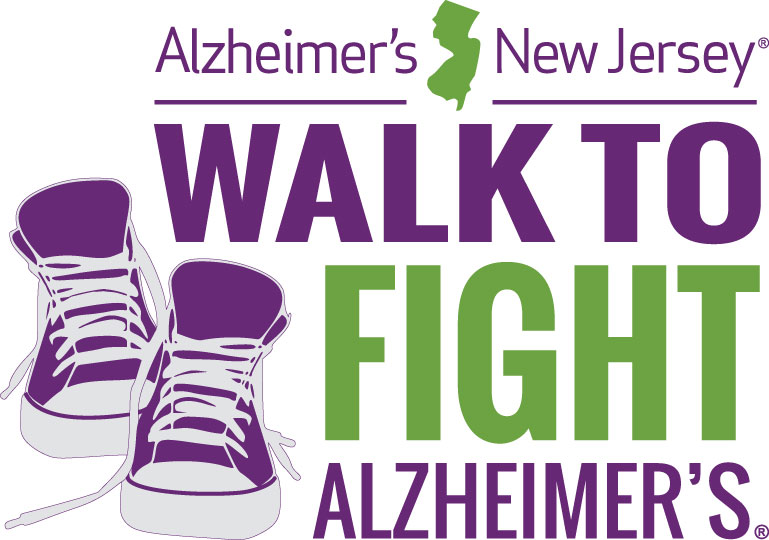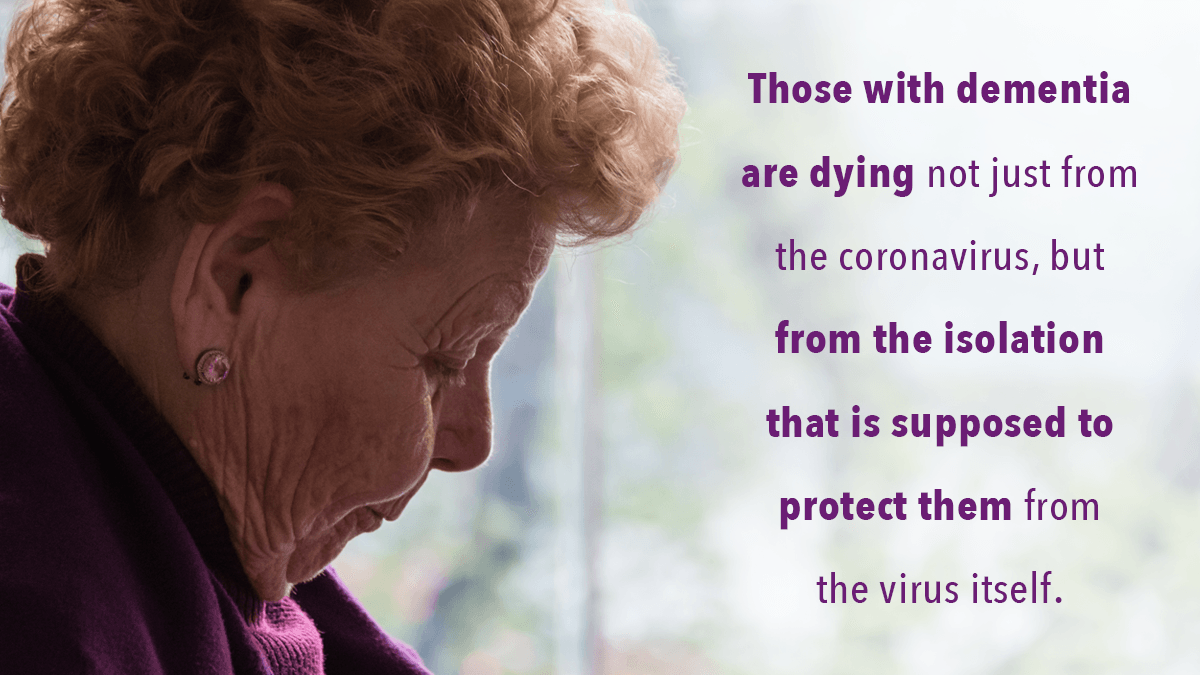By Ken Zaentz, President and CEO, Alzheimer’s New Jersey
In a recent Alzheimer’s New Jersey blog, I wrote about a new crisis in New Jersey’s residential care facilities. A crisis of isolation and loneliness caused by the inability of caregivers to visit their loved ones. A crisis created as an unintended consequence of New Jersey’s lockdown of these facilities to stop the spread of COVID-19. The blog also focused on the importance of family caregiver visitation as essential to quality care for their loved ones with Alzheimer’s disease or other dementias.
Alzheimer’s New Jersey is not alone in bringing public focus to this crisis. Our blog was published as a guest Opinion column in The Star-Ledger /nj.com. In addition, The New York Times, The Washington Post, the Asbury Park Press and AARP, among others, have all published articles which highlight this growing crisis. Many healthcare professionals with expertise in Alzheimer’s disease agree: Those with dementia are dying not just from the coronavirus, but from the isolation that is supposed to protect them from the virus itself.
This could not be more clearly stated than through the experiences of distraught family caregivers. Here is a summary of some of the stories that have been shared in Alzheimer’s New Jersey support groups.
I used to visit my wife 3 times a day and helped feed her. Now I see her a half hour a week outside and can’t go near her. The feeding times were great because not only could I make sure she ate but, it was also a shared time we enjoyed together.
If my wife does not walk regularly, she could lose the strength in her legs and the ability to walk. With dementia, she needs to be reminded and guided to walk. I can’t walk with her because I’m not allowed inside. Is anyone walking with her? Does the staff have the resources to provide someone to walk with her as much as she needs? I don’t know.
I lived with my wife for 50 years. Moving her to a nursing home was one of the hardest things I’ve ever had to do. Little did I know my time with her would be reduced from 24/7 to a half hour a week – 6 feet apart.
This crisis of isolation has now also been recognized by the Centers for Medicare and Medicaid Services (CMS) which, on September 17, published new guidelines to provide reasonable ways a nursing home can safely facilitate in-person visitation to address the psychosocial needs of residents. CMS supports a “person centered” approach to cover all types of visitors including those who have been categorized as “essential caregivers.”
Unfortunately, New Jersey’s visitation guidelines continue to be more restrictive and complex than those published by CMS. The New Jersey Department of Health has defined categories of acceptable visitation including Essential Caregivers and End of Life, Compassionate Care. But, these guidelines, admittedly published over a month before CMS, leave each residential care facility to establish its own policies and procedures – specifically for how to designate and utilize an Essential Caregiver and how to determine who meets the criteria of an Essential Caregiver.
As a result, based on the experiences caregivers are sharing with Alzheimer’s New Jersey, there is no consistency in the visitation policy among residential care facilities. Caregiver experiences range from residential care facilities that have already developed reasonable polices to designate Essential Caregivers and are permitting indoor visitation to those that seem completely unaware of the Essential Caregiver designation for indoor visitation and are only permitting limited outdoor visiting. And there is a great deal of variation in between.
By any definition, including New Jersey’s, a caregiver of an individual diagnosed with Alzheimer’s disease or another form of dementia is an Essential Caregiver. According to Dr. Jason Karlawish, Co-Director of the Penn Memory Center at the University of Pennsylvania, as quoted in The Washington Post: “It’s not just the loss of interaction. Families fill in a lot of gaps at nursing homes. They do much of the feeding and bathing. They advocate and communicate. They’re essential.”
With the weather getting colder and opportunities for limited outdoor visitation soon becoming even less practical, it’s time to cut through the overly confusing and complex New Jersey directives and not leave so much to residential care facilities to interpret. The Department of Health should designate every caregiver of someone with dementia as an Essential Caregiver and allow expanded visitation for family caregivers now before it’s too late.
And, if for some reason, the Department of Health cannot acknowledge that their Essential Caregiver definition fits every dementia caregiver then there is always the definition of End of Life, Compassionate Care. The sad reality of Alzheimer’s disease is that it is a terminal illness – the 6th leading cause of death in New Jersey. The longer we keep families from visiting their loved ones with dementia in our residential care facilities, the less time they will have together.
Alzheimer’s caregivers need your help to bring attention to this crisis in residential care. You can make an impact by sharing this article on your social media pages and through email. You can tweet the Governor at @PhilMurphyNJ and @GovMurphy and the Department of Health @NJDeptofHealth.


